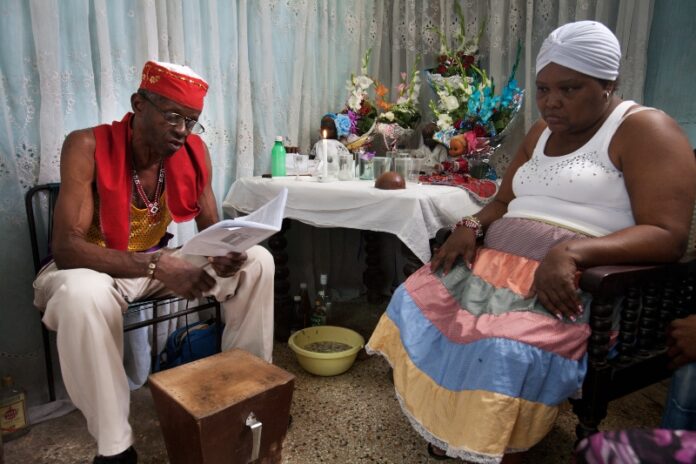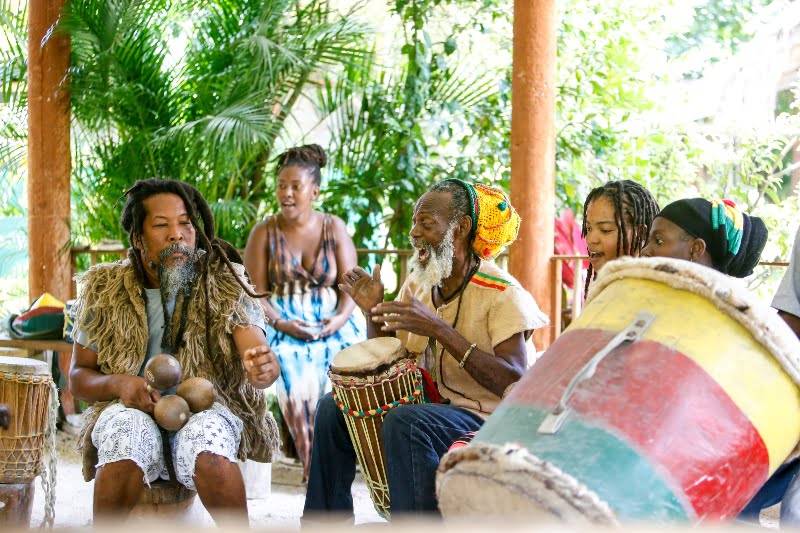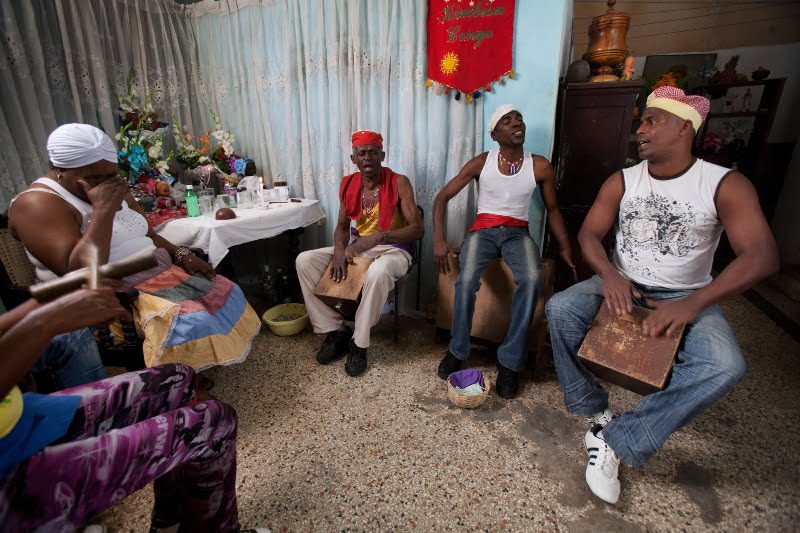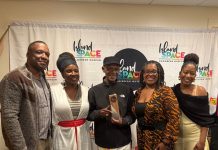
Caribbean people are immensely proud of our cultures. We brag about our food, music, dance, athletic prowess, and many other aspects of our distinct Caribbeanness. But, when it comes to homegrown religions, mum’s the word. I wanted to understand why we don’t know much about the religions grounded in our African heritage, like Obeah, Voodoo, Santeria, and even the internationally recognized Rastafari, why we usually think they’re negative, and whether there’s a path to changing that perception.
Perception Problem
With tell-tale dreadlocks, and depending on the sect, head wraps, floor-length gowns, and their holy sacrament—ganja—Rastafarians are easily identifiable, and their religion is known worldwide. Conceived in Jamaica in the 1930s, this movement combined Christianity, pan-Africanism, and holistic consciousness as a way of life. Over the years, Rastas have gained great credibility and acceptance thanks to ambassadors like Bob Marley and the gospel of Rasta, reggae music. But I remember when Rastas were severely mistreated, discriminated against, and feared for being “dreadful.”

While some people may view their beliefs as misguided though, Rastas aren’t dismissed as evil, unlike practitioners of some older Caribbean religions. Santeria (honor of the saints), a Spanish-Yoruba-Catholic hybrid religion founded in Cuba, teaches belief in one God served by a number of spirits. Voodoo, an African-Catholic belief system practiced in Haiti and other African diasporas, is also monotheistic, and involves art and the spirits of nature in worship. Obeah, practiced in Trinidad, Jamaica, The Bahamas, and a number of other Caribbean countries, is based on ancestral healing and spirituality—much like the way Catholicism calls on various saints intercession is needed. All three believe in spirit possession, and all three are looked upon with scorn, fear and even contempt by Caribbean and non-Caribbean people alike.
My research led me to believe that our generally negative perception of these religions is either based on their clandestine character, residual fear of anything based in African roots (instilled by colonialism), or the fact that we just don’t care to understand them.
Black Faith ≠ Black Magic
We know the history. Enslaved Africans taken to the Caribbean were forbidden to practice many of their cultural norms or native religions, which were feared by slaveholders. The colonizers portrayed African religions as sorcery, “black magic,” and tools to hurt others. Despite this, the oppressed peoples secretly held on to what they could, and within this new reality, our Caribbean religions emerged.

At the time, practicing any African religion could be punishable by death, which meant they had to be shrouded in secrecy—an essential element of their survival and still very much a part of their practice to date.
Even researching this article confirmed how inaccessible these religions are, and how unwilling practitioners are to talk openly about them. However, I did get some responses from a Facebook post questioning where we stand on Voodoo, Santeria, and Obeah.
“Coming from a Trinidadian background, we were taught to stay away from these religions because of the backlash that follows when you try to manipulate the spirit world for your own good,” writes Natalie who views them as ‘dark arts.’
Rich, a staunch practitioner of the African Yoruba religion says, “Yoruba, one of the main roots of traditional African religions in the Caribbean, has been a religion for 5,000 years, approximately 3,000 years before Christ. To say that no African religion has the status of religion strikes me as colonial-minded racism.”
In some circles, Santeria is acceptable, but for one South Florida santera we heard from, it is still taboo to her family and circle of friends. In fact, because of it, she no longer has a relationship with her mother, a staunch Christian from Jamaica. She says, “The slave trade still has a strong hold on our society and you can see the consequences and repercussions of it, especially with religion.”
Of all the African-derived religions in the Caribbean, Voodoo is probably the most feared. During the Haitian Revolution—the only successful revolt of enslaved people in the Caribbean—Voodoo played a major role. Even today the film industry continues to use the imagery of Voodoo dolls and zombies to present the belief system as “black magic.”
It was refreshing to hear from Haitian-American Alex, who says, “Voodoo is the most inclusive, peaceful religion in my country, but colonialism was so perfected that centuries later, even with 100% of the colonizers gone, we still demonize our spirituality.”
Altering Our Perspective
I was perhaps in first grade when my father told me Jesus did not look like the depiction we most often see. “Listen to the description of Jesus… ‘like wool,’” he said, grasping my hair. It dawned on me then that what I was being taught in my Christian elementary school was not necessarily fact, but rather versions of someone else’s reality.
In the context of this article, that understanding begs the question: what makes mainstream faiths such as Christianity, Hinduism, Judaism, and Islam legitimate if African-derived Caribbean faiths are not. But that’s a deeper discussion for another time.
Regardless of our current belief systems, it may enhance our connection to our own history if we stop looking at our African-derived religions through the colonial lens. Let’s take time to understand and celebrate them like we do the features, music, dance, culture and folklore we so proudly also inherited from mother Africa.





























